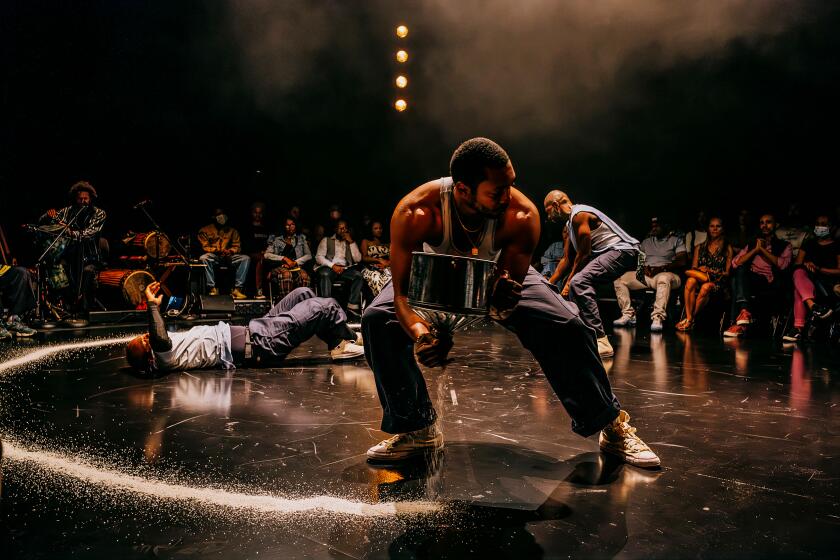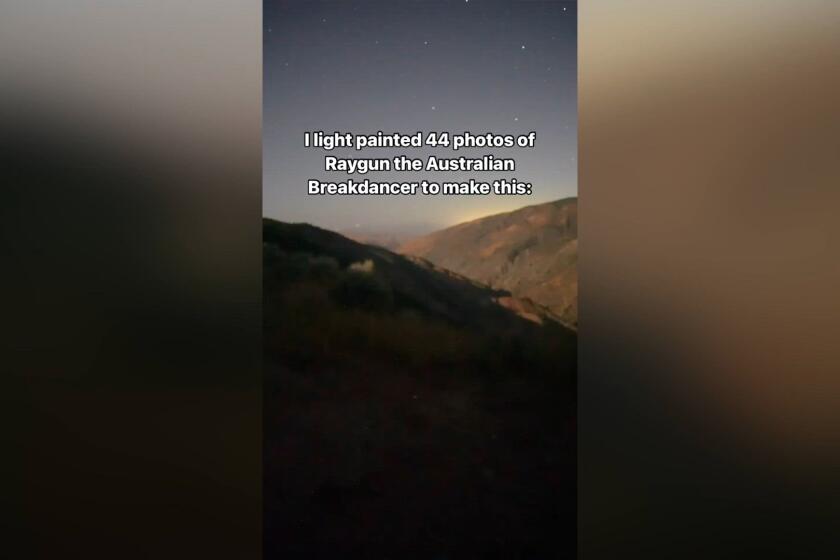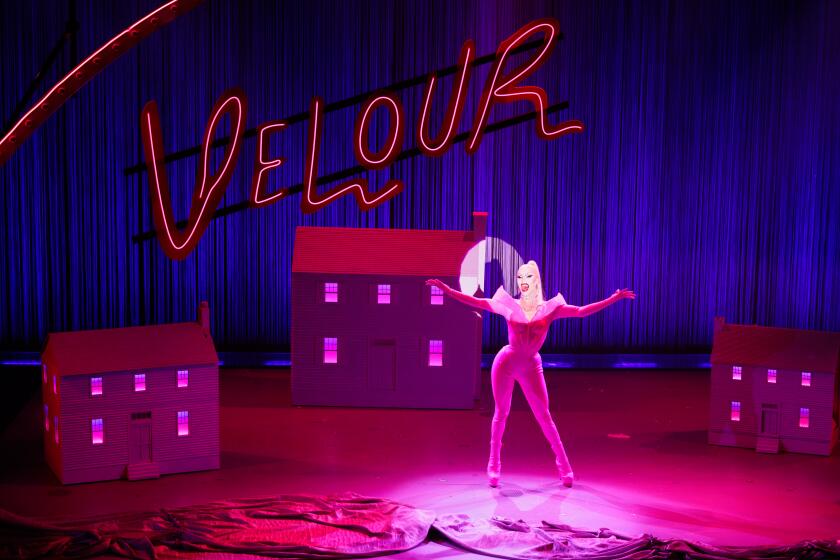L.B. CIVIC LIGHT OPERA’S ‘NEW MOON’ ON THE RISE
“ The sky is blue,
The night is cold,
The moon is new,
But love is old . . . “
-- Sigmund Romberg
Except, perhaps, for a few displaced reviewers, absolutely everyone at the Terrace Theater in Long Beach on Saturday night knew exactly what to expect from “The New Moon.”
Ripples of excited recognition spread through the house at the first hint of “Stout-Hearted Men” in the overture. And if they became ripples of giggles by the time Ann Blyth sang the very, very, very last solo reprise of this 1928 Sigmund Romberg anthem, no matter: The Long Beach Civic Light Opera had incontestably delivered a generous sampling of the vocal overkill and off-the-wall character comedy endemic to Broadway operetta.
In painterly (though often unmanageable) Michael Anania settings borrowed from the New York City Opera, Stuart Bishop’s production moved swiftly from one quirky plotline to the next, letting the improbabilities and clashes of style pile up into something highly preposterous yet highly endearing.
Consider the scene set in what looked like Lillas Pastia’s tavern, with an obvious spy (the resourceful, authoritative Ray Stewart) and his deformed toady easily luring nearly everyone into passionate declarations of high treason.
Consider the shipboard battle, in which the pirates of Penzance seemed to be attacking H.M.S. Pinafore. Or the cabin scene in which the mindless wordplay between characters might have come directly from early Ionesco.
This was all pure hokum, of course, most of the time utterly unrelated to human behavior as we know it on this planet. Indeed, almost every song had so many built-in reversals of fortune, fatal intrigues and other overwrought dramatic sideshows taking place that the production often played like MTV videos on fast-forward.
Of course, the plot scarcely proved memorable or even coherent. (Is this the one about a noblewoman who cons her way aboard a ship to New Orleans? No, that’s “Naughty Marietta.” This one is about a noblewoman who cons her way aboard a ship from New Orleans.) The songs, however, were clearly what the audience came to experience: juicy public displays of intimate feeling such as “Wanting You,” “One Kiss” and “Lover Come Back to Me.”
Built less on a surge of melody than an adroit development of simple motifs, Romberg lyricism typically demands operatic range extremes in even the most free-flowing songs (“Softly as in a Morning Sunrise,” for instance). In a sense, modern amplification destroys some of their raw thrill, for they are intended to be heard at full cry and only Jorge Lopez-Yanez (as Philippe) sounded unleashed.
Blyth made a spunky, likable Marianne--though, of course, the character could not grow since she was warm and accessible right from the beginning, rather than a pampered child of power. All but obliterated in the ball scene by a gown exploding with ruffles, polka dots, ribbons, bows and lame, Blyth nevertheless radiated great poise and style. But, at 58, her voice must be carefully husbanded and, even so, frequently sounded pinched or hooded on Saturday.
Without fervor either in characterization or vocalism, Edward Evanko emerged as a bland lover/revolutionary. He sang very sweetly and acted conscientiously but often got lost in the plot that supposedly revolved around him.
Sometimes Bishop discreetly underscored his text--making, for instance, Blyth spend half the night posing atop staircases, as if her song “Let me be like the girl on the prow” were a deep cris de coeur .
Elsewhere, he seemed merely to turn loose a number of eccentrics and stay out of their way. Consequently, the long sequences of comic relief had a freewheeling spontaneity and triumphed through the endless capacity for energetic weirdness of Jerry Clark (Alexander), Carol Swarbrick (Clotilde), Joseph C. Leavitt (Besac) and Gail Johnston (Julie).
Due to the ability of Bishop, conductor Steven Smith and most of the cast to keep “The New Moon” vibrantly, if deliriously alive, the classic ballads didn’t end up being the only good reason for seeing the show (running through March 15). That, for an operetta revival, is pretty remarkable.
More to Read
The biggest entertainment stories
Get our big stories about Hollywood, film, television, music, arts, culture and more right in your inbox as soon as they publish.
You may occasionally receive promotional content from the Los Angeles Times.






